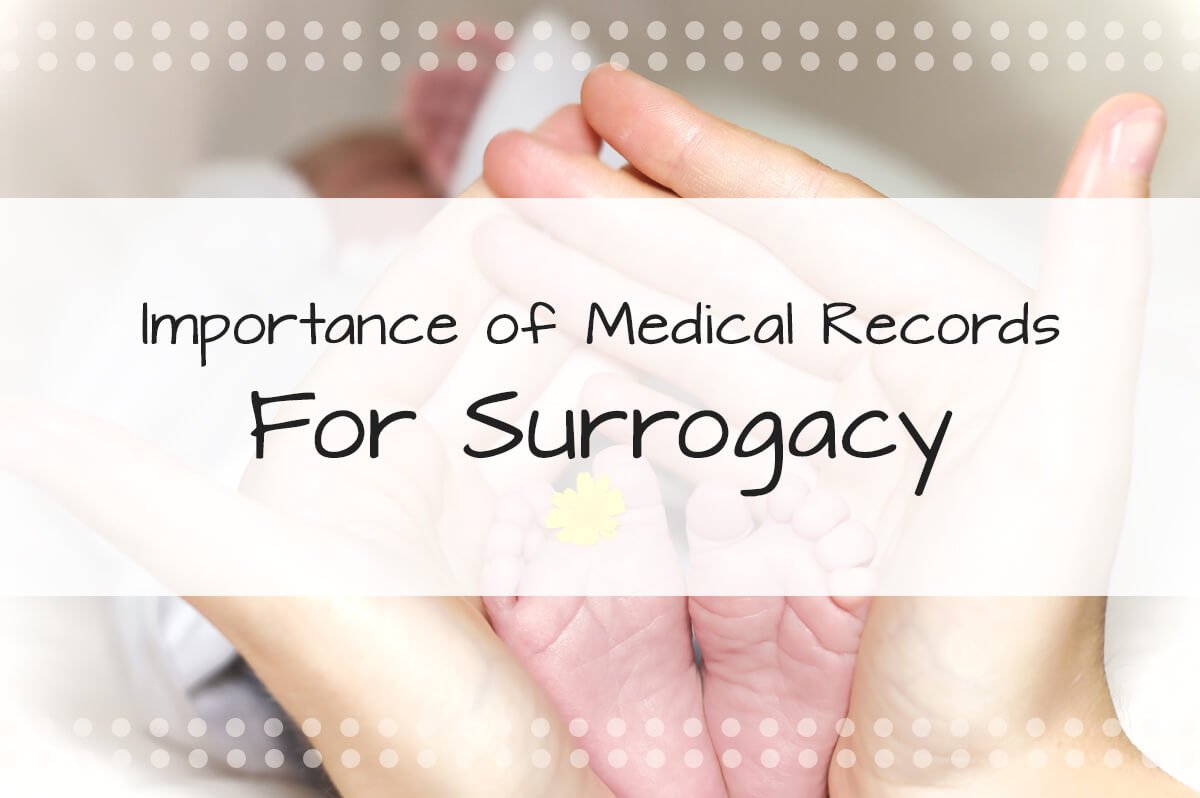
The Importance of Medical Records for Surrogacy: Become a Surrogate in California with These Common Qualifications
When a woman makes the noble and compassionate decision to help another couple experience the joys of parenthood by determining to become a surrogate, she should first research our recommended surrogacy qualifications.
All surrogate agencies in California that offer surrogate related services prefer or require that any prospective surrogate show proof of at least one healthy pregnancy beforehand. Fertility clinics and surrogate agencies typically have various qualifications in place that includes a thorough medical exam and medical testing. Take a look here for more about our surrogate process.
Each surrogate must also provide the necessary medical records before officially becoming a surrogate. This step by step process helps our agency find healthy surrogates most likely to carry a pregnancy to term and deliver a healthy baby.
What Are the Common Surrogacy Qualifications?
While each fertility clinic and/or surrogate agency requirements will differ somewhat, there are some general surrogacy qualifications that prospective surrogates must meet before the process of becoming a surrogate can begin.
Some of the more common health/medical qualifications include:
- Must be of recommended childbearing age – age 23 to 38
- Have had at least one healthy pregnancy without complications and carried to term
- Not had more than two C-Sections
- Must pass certain medical & lab tests to prove good health and lower childbirth risk factors
- Possible genetic testing to determine risks of possible inherited birth defects
- Currently, have a BMI of 30 or lower – Body Mass Index
- Be in good general health physically
- Pass and be in good mental and emotional health as well
- Not be taking medications that can cross the placenta to baby – examples: meds for anxiety, depression,
- Be a non-smoker & not living in an environment where second-hand smoke exposure is likely
- No harmful drug use history
Some additional qualifications commonly required include:
- Pass background checks including no criminal history
- Be financially secure
- Not on Federal or State types of assistance – public welfare, low-income housing assistance & others
- Live in a state that has surrogate-friendly laws
- Not addicted to illegal drugs or alcohol or misuse of these substances
- Be in a safe living environment
- Be a US citizen
For precise details on surrogate qualifications, give us a call at 916-226-4342.
Why Are a Potential Surrogate’s Medical Records Important?
Due to the legal liabilities that surrogates, healthcare entities, and surrogate agencies must consider, Made in the USA Surrogacy must require evidence as to the good health of a prospective surrogate before signing any legal surrogate contracts or presenting you to our intended parents as a possible match.
Part of obtaining the necessary health evidence is to require the past and current medical records of each unique surrogate—this will include all of your hospital and pregnancy-related records.
Past medical history can tell a more accurate story of overall health and fitness needed to become pregnant and sustain that pregnancy all the way until the delivery.
Also, a surrogates’ family history with regards to health can show indicators of possible future health problems of either the surrogate and/or her delivered baby.
As a gestational surrogate, however, you will not share genetic DNA with the carried baby, but a thorough medical history is important to ascertain the probability of an uncomplicated pregnancy going forward.
Some possible detriments that a surrogate’s medical record could show include:
- Too many vaginal or C-section deliveries
- Chronic health conditions – diabetes, high blood pressure, heart disease, etc.
- Past gestational diabetes – when women develop diabetes while pregnant that resolves after delivery
- Family history of certain inherited disorders – birth defects, learning problems, autoimmune disorders & others
- Past or current alcohol or drug addictions
- General fitness level under recommended guidelines
- Over or under the recommended weight
- Poor diet history
- Smoker
- Condition of uterus
- Past complications when pregnant
- Personal or family history of cancer, strokes, heart disease, etc.
- Poor social or lifestyle history
- History of postpartum depression
- Mental health or emotional disorders
- History of sexually transmitted diseases or STD’s
When part of the process do I obtain my medical record to be screened as a surrogate?
We suggest gathering your medical record as soon as possible.
You will not be looked at as a serious candidate, nor can we allow parents to view your profile until this part of your process is complete.
Obtaining your medical record for most of our surrogate mother hopefuls is arguably the most arduous and stressful part of the process of becoming a surrogate—besides obtaining a new PAP Smear if your last one was not within the last year.
Also, as part of your medical record sign-off, we will also ask you to provide us with an “OB-Clearance” letter—stating that your physician believes you are a good candidate for becoming a surrogate based on your medical history with their clinic and your vitals are up to date.
We ask all potential surrogate mothers to obtain their medical record (all pregnancies if you have multiple births, and all hospital records).
Many of our surrogates come to us with multiple pregnancies that are across many years and across many different clinics or hospitals.
This will be by far one of the hardest parts in your screening process to obtain, so we suggest working hard on gathering the information as soon as you decide that you would like to move forward in becoming a surrogate—if you meet all of the up-front qualifications.
How Do I Ensure a Healthy Pregnancy When I Become a Surrogate?
Every surrogate should be determined to follow all of her doctor’s instructions and medical recommendations to decrease chances for complications when carrying a child.
Additionally, it is crucial to lead a healthy lifestyle before, during and throughout the surrogate process.
Some healthy lifestyle recommendations include:
- Eat a balanced & nutritious diet
- Get regular exercise under doctor supervision
- Stay away from cigarette smoke or vaping- including marijuana or other legal or other forms of smoking
- Avoid drugs & always clear any prescribed or OTC drugs or supplements with a doctor before taking or stopping
- Keep all doctor & other healthcare appointments – doctor, OB/GYN, fertility specialists, mental health therapist, nutritionist, etc.
- Get plenty of sleep
- Avoid high-risk behaviors & activities as directed by the medical team
- Follow any abstinence instructions precisely
- Spouse or significant other sexual partners also need to be screened for STDs & other communicable diseases – AIDS, herpes, TB, hepatitis, etc.
What Should I Expect During a Surrogate Pregnancy?
It makes sense to learn what is involved before becoming a surrogate.
This helps to lower the chances of a surrogate not abiding by the guidelines or breaking their legal surrogate contract obligations.
There are specific steps in the surrogate process that usually are required by competent agencies that word with surrogates and intended parents.
Some, all or a variation of the above-mentioned screening requirements should always be expected.
Next, the surrogate will often be given fertility treatments like medications to regulate her menstrual cycle and prepare her body for becoming pregnant.
It is common for the surrogate to go through a mock trial of fertility medication that helps the medical staff assess how the surrogate’s body responds before the actual embryo transfer.
If all goes well, the surrogate will then undergo the embryo transfer at the appointed time.
If the intended mother or egg donor is from another area, the surrogate typically travels to that location for the procedure. This part is typically painless and is fast, not lasting more than 3-4 days of travel on average.
More lab tests and healthcare monitoring such as a pregnancy test and perhaps even an ultrasound to ensure that the surrogate does become pregnant.
Afterward, the surrogate will be given prenatal care by an OBGYN and/or other medical specialists right up until the big day when the baby is delivered.
Following delivery, the surrogate will continue postpartum care for the recommended length of time to ensure that all is well.
Should I Take Prenatal Vitamins Before and/or During a Surrogate Pregnancy?
Most fertility and OBGYNs recommend that a woman take certain prenatal vitamins before, during and possibly after the surrogate process. All vitamins, minerals and other OTC supplements should always be cleared first with the surrogate’s fertility doctor before using.
These supplements can be dangerous, and it is important to only use the exact brand and dosage that the doctor prescribes to ensure the safety and health of the baby and surrogate.
When taken as directed, these vitamins can help to ensure that the surrogate has the required amounts of the various vitamins in her system necessary for healthy pregnancies.
How Do I Go About Becoming a Surrogate?
Surrogates that use a California surrogacy agency such as ours will get the expertise and security of the agency’s knowledge, services, and assistance that helps to make the entire surrogate process go smoother for all parties involved.
We encourage all surrogate prospects to make sure their medical record is precise—include all records from your OBGYN as well as your hospital and delivery records, pre-natal and everything related to your pregnancy histories.
We want to make the process of becoming a surrogate as painless as possible—this is the first step of many to make sure we have all of the necessary information to make your file complete.

If you think you would be a great candidate for surrogacy—we encourage you to apply by filling out our form or giving us a call at 916-226-4342!
